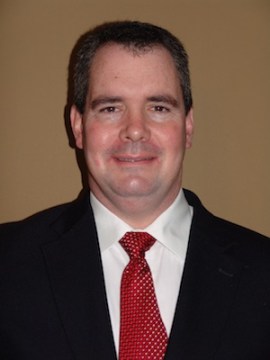Laramie, Wyoming, is a long way from Waycross, Georgia.
Dr. Joel Higgins has mixed feelings about departing the Peach State. Born in Augusta, he practiced in Waycross as an ob/gyn from 2001 until last December. “I’m leaving with a bitter taste,’’ Higgins says. “I like Georgia.’’
But a deteriorating financial situation drove him to move to Wyoming, he says.
During his time in Waycross, Higgins says, “my income dropped a fair amount.’’
“It was hard to see that it was going to get significantly better,’’ he says now.
Roughly 70 percent of Higgins’ Waycross patients were on Medicaid, the government insurance program for the poor and disabled. Medicaid, which covers most of the births in Georgia, has not raised its reimbursements rates to doctors in 10 years. And this year, that pay is being cut by 0.5 percent.
The Georgia Obstetrical and Gynecological Society (of which Higgins is a former president) is concerned about an exodus of doctors from the state — and about patients losing access to care. Georgia already has a shortage of primary care doctors, and that deficit is worse in rural areas.
“We’re finding a number of towns where we’re losing obstetricians,’’ says Pat Cota, executive director of the OB Gyn Society. LaGrange, Bainbridge, Americus and Moultrie, among other towns, have lost ob/gyns, Cota says. “It’s starting to add up.’’
State officials with the Department of Community Health are well aware of the problem. The department’s commissioner, David Cook, recently expressed concern about doctors dropping out of Medicaid and PeachCare because of low pay.
The state’s population is increasing faster than its supply of primary care doctors, said Cherri Tucker, executive director of the Georgia Board for Physician Workforce, earlier this year.
Ob/gyns in Georgia, for example, dropped from 13.48 per 100,000 people in 2004 to 10.92 per 100,000 in 2008, Tucker said.
And the health care reform law, if upheld by the courts, will add hundreds of thousands of Georgians to the state’s Medicaid program in 2014. A statistical analysis earlier this year found that Georgia has the second-largest problem among states in offering enough primary care medical providers for the number of residents who will be newly insured under reform.
Low reimbursements from government insurance programs have made rural physicians’ practices less financially viable, says Jimmy Lewis, CEO of HomeTown Health, an association of rural hospitals in the state.
Rural doctors often have workloads so great that they experience burnout, Lewis adds. Many rural physicians have sought to be employed by hospitals, he says.
“The ability to keep physicians in rural areas is probably at one of the worst points ever,’’ Lewis says. Many rural hospitals, because of low reimbursements and patient volumes, have stopped delivering babies.
One solution is to use more physician assistants and nurse practitioners in rural Georgia, he says.
Dr. Higgins, the ob/gyn who decided to leave Georgia, says he and his family were already dealing with personal debt from medical school and consumer loans when his income fell by 15 percent. Meanwhile, the costs of practicing medicine kept increasing. And there were hassles in dealing with the managed care companies in the Medicaid program, he adds.
“There weren’t a lot of signs of things getting better in Waycross,’’ says Higgins, 43.
In Wyoming, where there are fewer Medicaid patients, ”the potential is much more,’’ he says. Wyoming has a far smaller population — and currently a stronger economy — than Georgia.
But Higgins’ ties to the Peach State are not over: He hasn’t been able to sell his old ob/gyn practice in Waycross. The town has gone from four OBs to two, he says.
What will happen when the pay cut for Georgia Medicaid kicks in? “It’s going to exacerbate the situation, particularly in the rural areas,’’ Higgins predicts.

